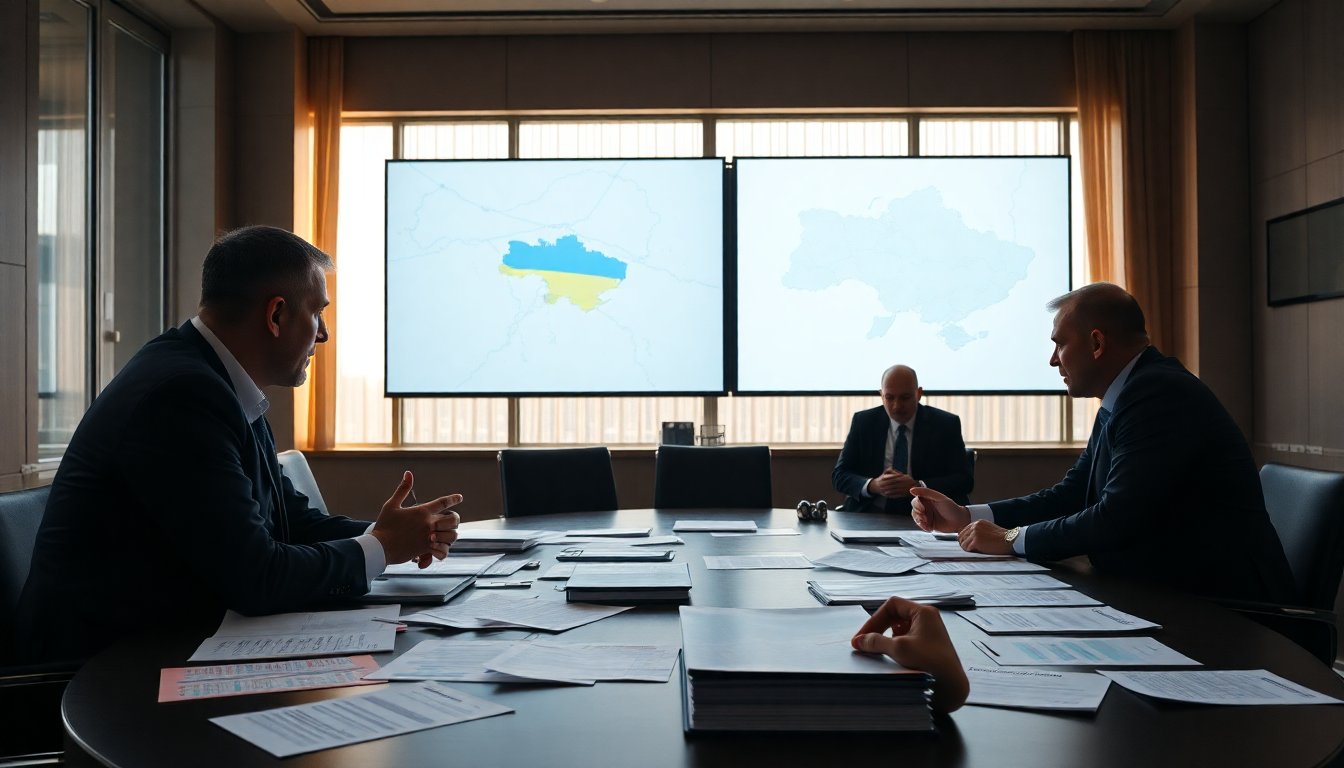Table of Contents
In a significant development regarding financial aid for Ukraine, Belgium has raised concerns about a proposed plan to use €140 billion in frozen Russian assets. This proposal comes amid escalating tensions and the ongoing conflict between Ukraine and Russia, particularly since the start of the full-scale invasion by President Vladimir Putin. The European Union, while aiming to support Ukraine, faces internal challenges, especially from Belgium’s Prime Minister Bart De Wever, who has highlighted the potential legal ramifications of this unprecedented action.
Legal concerns surrounding the loan
Hadja Lahbib, the Belgian European Commissioner and former foreign minister, highlighted the need for a thorough examination of the legal implications related to accessing frozen assets. She stated that the EU is “not ready” to make such a significant move without first addressing the various legal risks involved. The assets in question are primarily held in Belgium’s financial depository, Euroclear, and any decision to mobilize them must be approached with extreme caution.
Belgium’s unique position in asset management
Belgium holds a significant portion of frozen Russian assets, contributing to aid for Ukraine through accrued interest from these funds. Minister Lahbib emphasized that this reflects a proactive stance within a framework of legal caution. He pointed out that other EU nations, including Luxembourg and Germany, also hold Russian assets but may not be as effective in supporting Ukraine as Belgium is. This situation raises concerns about the collective responsibility of EU member states in providing assistance during this crisis.
The implications of the proposed plan
The plan to use frozen Russian assets as a “reparations loan” aimed to deliver immediate financial support to Ukraine. Under this proposal, repayments would only be required if Russia acknowledges and compensates for war damages in the future. However, the initiative faced challenges during a recent European Council summit. Belgian leader Geert De Wever raised concerns about potential legal and financial ramifications. He emphasized the need for reassurances, fearing possible retaliation from Russia.
Reactions from European leaders
Following the objections raised by De Wever, European Union leaders have left the issue unresolved. They have tasked the European Commission with exploring viable options. Discussions are set to resume in December. Lahbib has expressed cautious optimism regarding the potential for a solution, which depends on the support of legal experts and collaboration among member states. The urgency of Ukraine’s financial situation is critical, as the country faces severe economic challenges if additional support does not materialize soon.
The facts
European Union leaders are re-evaluating their strategies in response to Ukraine’s ongoing needs. This assessment is critical for both Ukraine and the EU’s credibility. Finnish Prime Minister Petteri Orpo stated that Ukraine must be equipped to match or exceed Russia’s military capabilities. He added that strength is the only language that Vladimir Putin understands.
What happened
Ukrainian President Volodymyr Zelenskyy has expressed willingness to negotiate a potential truce. However, he confirmed that no definitive agreements have been established thus far. The situation remains fluid as leaders monitor developments closely.
Other European leaders, including French President Emmanuel Macron, have suggested that the proposal to utilize frozen Russian assets remains under consideration. The political climate in Europe is complicated by internal challenges, such as Belgium’s ongoing budget negotiations and public protests against spending cuts, which hinder the overall decision-making process.
The facts
The intention to support Ukraine through the mobilization of frozen Russian assets is evident. However, legal and political complexities exist that could affect the implementation of this support. Resolving these issues will be crucial for the European Union’s ability to assist Ukraine effectively.
The consequences
The ongoing negotiations and protests may delay or alter the proposed plans. The effectiveness of the EU’s support for Ukraine hinges on overcoming these challenges, highlighting the intricate balance of domestic and international priorities.


